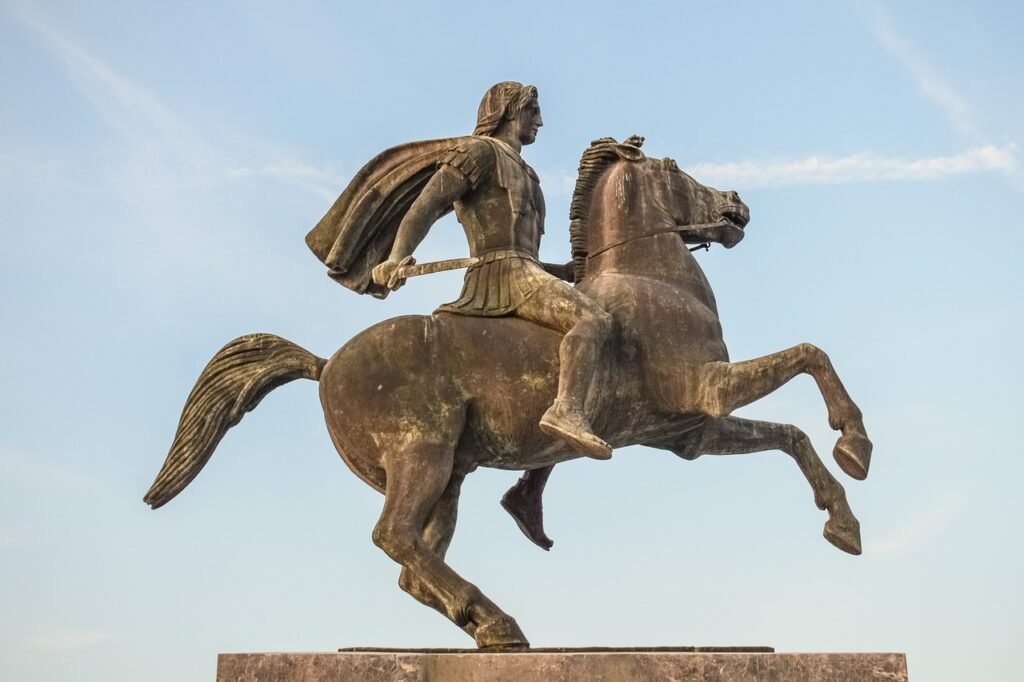Alexander the Great, one of history’s most celebrated military leaders, was born in 356 BCE in Pella, the ancient capital of Macedonia. Here are some key facts about him:
- Birth and Parentage: Alexander III of Macedon, commonly known as Alexander the Great, was born in 356 BCE in Pella, the ancient capital of Macedonia. He was the son of King Philip II of Macedon and Queen Olympia, who was said to be the daughter of the king of Epirus.
- Education by Aristotle: Alexander received a privileged education under the tutelage of the philosopher Aristotle. Aristotle instilled in Alexander a love for learning and intellectual curiosity, which influenced his later conquests and pursuits.
- Ascension to the Throne: Alexander became king of Macedonia at the age of 20, following the assassination of his father, King Philip II, in 336 BCE. He quickly asserted his authority and consolidated his power within the kingdom.
- Military Campaigns: Alexander is best known for his military conquests, which expanded the Macedonian Empire to one of the largest empires in history. He embarked on his first military campaign against the Persian Empire in 334 BCE, ultimately defeating Persian King Darius III in a series of battles.
- Conquests in Asia: Alexander’s military campaigns took him across Asia Minor, Egypt, Mesopotamia, and beyond, as he sought to conquer the vast territories of the Persian Empire. He famously defeated the Persian forces at the Battle of Issus in 333 BCE and conquered Egypt in 332 BCE, where he founded the city of Alexandria.
- Reign in Persia: After defeating Darius III, Alexander claimed the Persian throne and adopted Persian customs and dress. He married Roxana, a Persian princess, and encouraged his soldiers to marry Persian women to promote unity.
- Siege of Tyre: One of Alexander’s most notable military achievements was the siege of the island city of Tyre in 332 BCE. Despite facing formidable defences, including massive walls and a naval blockade, Alexander’s forces eventually breached the city’s defences after a seven-month siege.
- Tutelage of Bucephalus: Alexander’s beloved horse, Bucephalus, played a significant role in his early life and military campaigns. Legend has it that Alexander tamed the wild horse when he was only 12 years old, demonstrating his exceptional skill and bravery.
- Legacy of Hellenization: Alexander’s conquests spread Greek culture and influence throughout the known world, a process known as Hellenization. He founded numerous cities, many of which were named Alexandria, which served as centres of Greek culture, commerce, and learning.
- Death and Successors: Alexander’s conquests came to an abrupt end when he died in Babylon in 323 BCE at the age of 32, possibly from illness or poisoning. His death sparked a power struggle among his generals, known as the Wars of the Diadochi, which eventually led to the fragmentation of his empire.
- Historical Influence: Alexander the Great is remembered as one of the greatest military commanders and empire builders in history. His conquests had a profound and lasting impact on the civilizations of the ancient world, shaping the course of history and leaving behind a legacy that continues to be studied and admired to this day.
